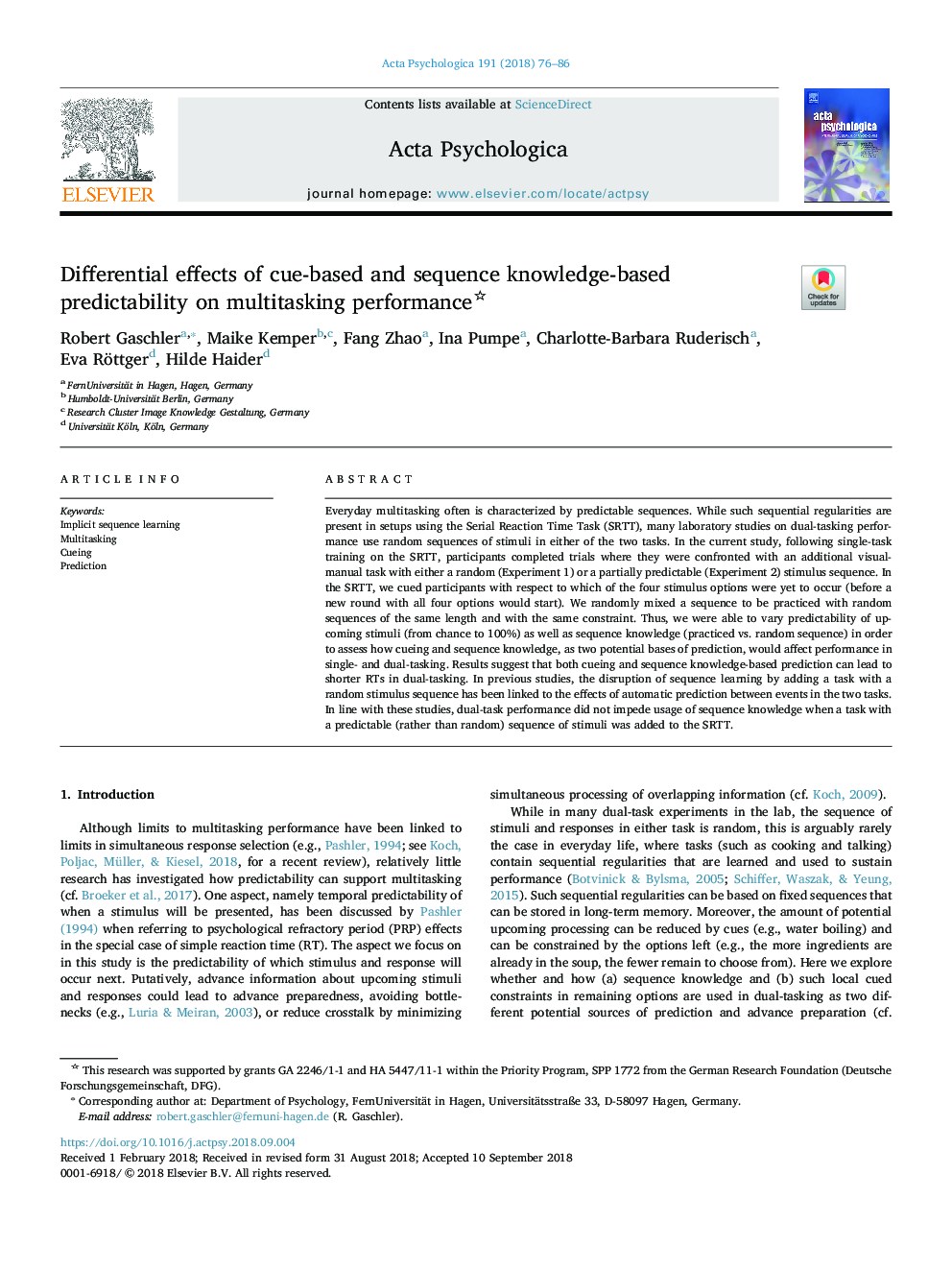| کد مقاله | کد نشریه | سال انتشار | مقاله انگلیسی | نسخه تمام متن |
|---|---|---|---|---|
| 10147028 | 1646429 | 2018 | 11 صفحه PDF | دانلود رایگان |
عنوان انگلیسی مقاله ISI
Differential effects of cue-based and sequence knowledge-based predictability on multitasking performance
ترجمه فارسی عنوان
اثرات متفاوتی از پیش بینی مبتنی بر نشانه مبتنی بر نشانه و مبتنی بر دانش بر عملکرد چند کاره
دانلود مقاله + سفارش ترجمه
دانلود مقاله ISI انگلیسی
رایگان برای ایرانیان
کلمات کلیدی
موضوعات مرتبط
علوم زیستی و بیوفناوری
علم عصب شناسی
علوم اعصاب شناختی
چکیده انگلیسی
Everyday multitasking often is characterized by predictable sequences. While such sequential regularities are present in setups using the Serial Reaction Time Task (SRTT), many laboratory studies on dual-tasking performance use random sequences of stimuli in either of the two tasks. In the current study, following single-task training on the SRTT, participants completed trials where they were confronted with an additional visual-manual task with either a random (Experiment 1) or a partially predictable (Experiment 2) stimulus sequence. In the SRTT, we cued participants with respect to which of the four stimulus options were yet to occur (before a new round with all four options would start). We randomly mixed a sequence to be practiced with random sequences of the same length and with the same constraint. Thus, we were able to vary predictability of upcoming stimuli (from chance to 100%) as well as sequence knowledge (practiced vs. random sequence) in order to assess how cueing and sequence knowledge, as two potential bases of prediction, would affect performance in single- and dual-tasking. Results suggest that both cueing and sequence knowledge-based prediction can lead to shorter RTs in dual-tasking. In previous studies, the disruption of sequence learning by adding a task with a random stimulus sequence has been linked to the effects of automatic prediction between events in the two tasks. In line with these studies, dual-task performance did not impede usage of sequence knowledge when a task with a predictable (rather than random) sequence of stimuli was added to the SRTT.
ناشر
Database: Elsevier - ScienceDirect (ساینس دایرکت)
Journal: Acta Psychologica - Volume 191, November 2018, Pages 76-86
Journal: Acta Psychologica - Volume 191, November 2018, Pages 76-86
نویسندگان
Robert Gaschler, Maike Kemper, Fang Zhao, Ina Pumpe, Charlotte-Barbara Ruderisch, Eva Röttger, Hilde Haider,
